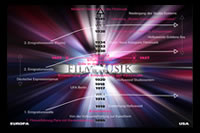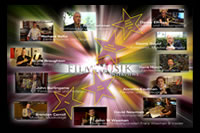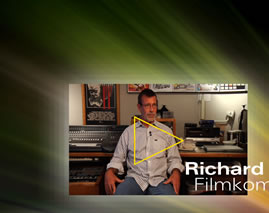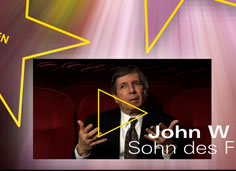
 |
 |
 |
 |
 |
John Burlingame – Filmhistoriker und Professor im Interview |
John Burlingame ist einer der führenden Autoren über Film- und Fernsehgeschichte in den USA. Er veröffentlichte zahlreiche Bücher und zahllose Zeitschriften-Artikel über dieses Gebiet, einschließlich einer Geschichte der Filmmusik. Im Interview beschreibt er den Einfluss der großen „klassischen” Komponisten auf Max Steiner.
|
|
Questions: What interests me, because there are a couple of opinions: Steiner was obviously one of the first to score films. Was he really the first one to score a feature film? Is King Kong actually the first original score for a movie? Questions: Steiner grew up in Vienna with the Operetta and Mahler, Richard Strauss and also the family Strauß, he grew up in the environment of the amusement park Venice in Vienna. Do you think he somehow imported all the influences he inhaled in Vienna to Hollywood? Was Steiner the first one who used the leitmotiv technique in Hollywood? Question: We talked about King Kong, maybe you could describe a little bit the techniques Steiner applied for a film like Gone with the Wind. |
| Details from an interview with the total length of 36 min. |
Writer, lecturer, and professor John Burlingame discusses the work of Max Steiner. As a scholar, Burlingame articulates well the impact that Steiner had on the art of film scoring. Describing him as „one of the pioneers“ of film music, Burlingame analyzes how Steiner was influenced by the many great composers of the classical music tradition to use techniques that were revolutionary in the world of film music. Burlingame emphasizes how masterfully Steiner was able to portray the emotional arc of a film through his scores, with examples from films such as Casablanca, Gone With the Wind, Voyager, and The Informer. Additionally, he reflects upon the development of Steiner’s music throughout his career from the 30s to the 60s. Die Fragen stellte Sandra Tomek. |
 |
 |
 |
|||
 |
|||||
 |
|||||
 |
|||||
 |
|||||
 |
|||||
 |
|||||
 |
 |
 |
|||